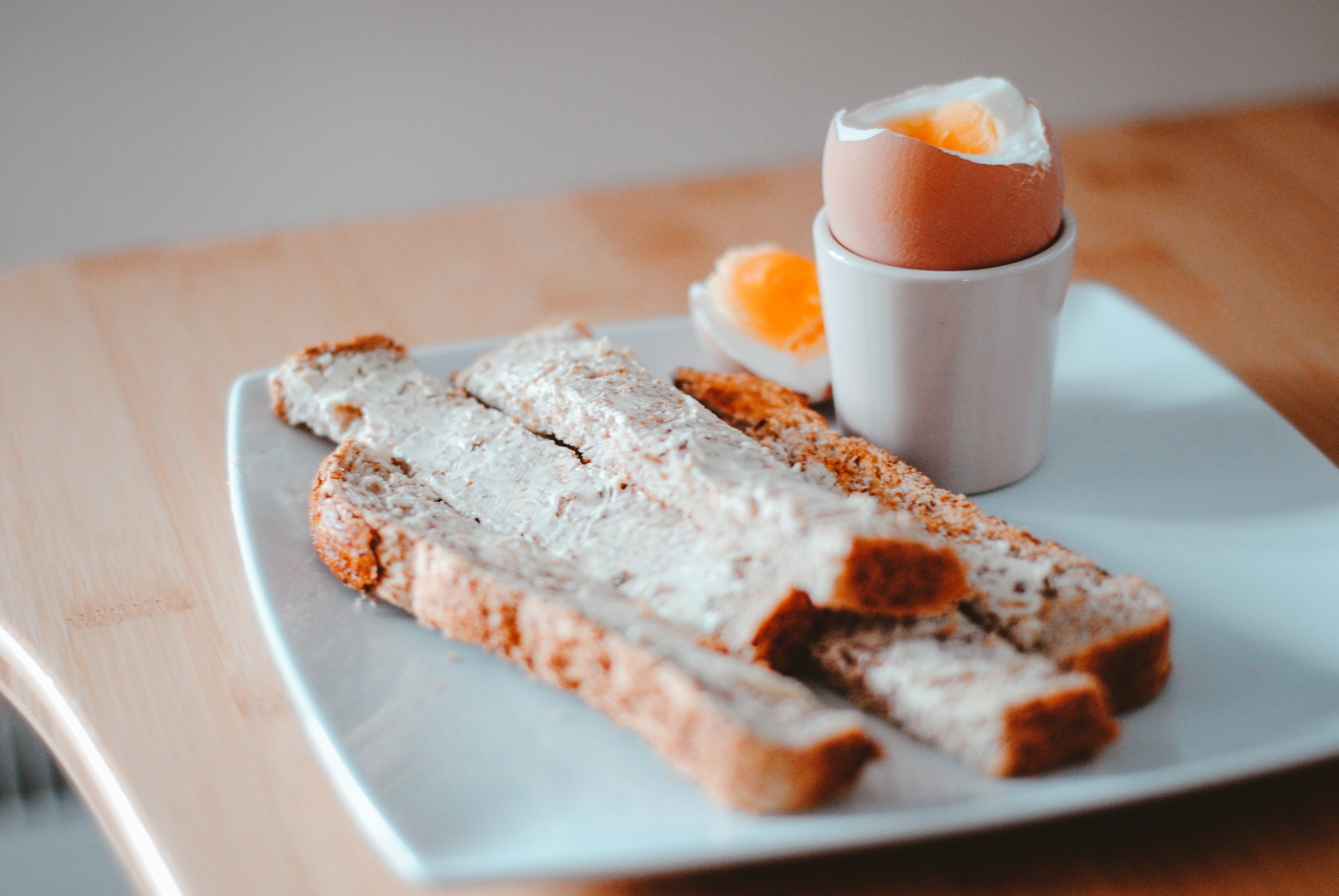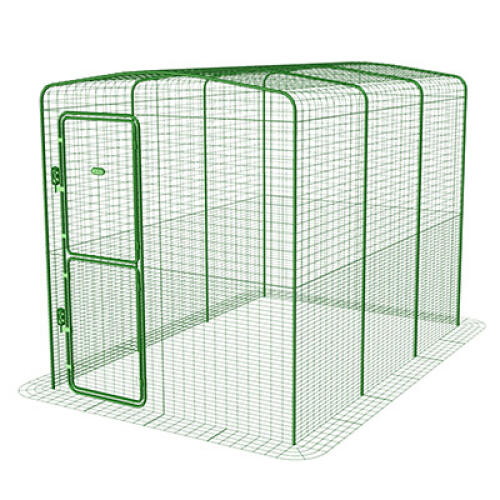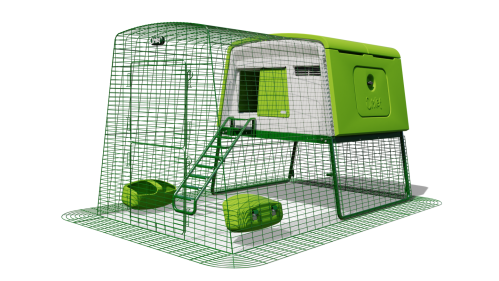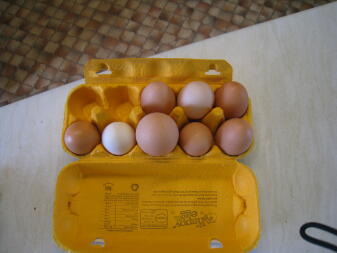
Fresh eggs have never been tastier with thanks to Omlet’s range of innovative chicken products.
Boiled eggs make for a quick and easy protein-packed snack, or a perfect companion to breakfast or lunch items. They’re also a great way to add texture or nutrients to salads and other recipes. If you’re looking for new ways to prepare your flock’s freshly laid eggs, try some of these boiled egg suggestions.
A note about boiling fresh eggs
As an egg ages, air is released between the egg white and the shell, creating a small space where the white pulls away from the shell. The older the egg, the bigger the space. This is why fresh eggs sink in water, while older eggs stand on end or even float if they’re close to spoiling. A small air-filled space in eggs makes their shells easier to remove once they are boiled.
Freshly laid eggs can be difficult to peel once they are boiled because their whites are flush against the shells. If you’re boiling your hens’ freshly laid eggs, try to pick eggs that have sat at room temperature for at least one week. This will allow time for the white to pull away from the shell, which will help you in the post-boiling peeling process.
Other methods that help remove the shells of boiled eggs include:
- Adding a teaspoon of baking soda to the boiling water
- Adding 1 tablespoon of vinegar to the boiling water
- Placing boiled eggs into an ice bath
How to make boiled eggs
- 1. Bring a medium pot of water to a boil. You want the pot to be full enough to cover the eggs, but not so full that it will boil over.
- 2. Add baking soda or vinegar if desired to make shells easier to remove.
- 3. Reduce heat to medium-high to maintain a gentle boil.
- 4. Add eggs by lowering them gently with a slotted spoon or tongs.
- 5. Boil until the desired consistency (see notes below).
- 6. Once their boiling time is complete, remove from heat and place eggs into an ice bath for 10-15 minutes.
- 7. Boiled eggs can be stored in an airtight container for up to one week in the refrigerator.
Types of boiled eggs
There are different levels of doneness for boiled eggs: soft, medium, and hard-boiled. Soft-boiled eggs have runny yolks, perfect for smearing on toast or in egg sandwiches. Medium-boiled eggs are more firm and slice more easily, making them ideal for salads or snacking. Hard-boiled eggs have fully cooked yolks that crumble easily, which is ideal when making deviled eggs or adding them to tuna or pasta salads.
To achieve the desired consistency, use the following boiling times:
- Soft boiled - 6-7 minutes
- Medium boiled - 8-9 minutes
- Hard-boiled - 10 minutes
Start your timer as soon as the eggs are placed in the boiling water. Reduce the heat on your stove if the eggs bounce during the boiling process to avoid cracking.
Tips for peeling boiled eggs
After your boiled eggs have sat in their ice bath, it’s time to remove the shells. The membrane just below the shell will also need to be removed, but it can aid you in the process. Once you’ve cracked the shell, peel up the membrane as well – it will pull the shell up from the underside, unwrapping the egg like a present. Always rinse peeled eggs under running water to remove any leftover bits of shell.
There are several peeling methods to try, but as with all things, practice makes perfect. Experiment until you find a way that works best for you.
The tap-and-peel method
Tap the egg on your countertop repeatedly, rotating it until the shell is cracked all the way around. Gently peel the egg, trying to get as much of the membrane as possible. Peel slowly to avoid pulling the egg white and creating divots in your finished product. This method can be used for any boiled egg.
The rolling method
Similar to tapping, you can roll a boiled egg on a countertop to crack the shell. Place the boiled egg on its side, and with the palm and heel of your hand, press gently until you hear the egg crack. Roll the egg back and forth until it is cracked all over. Peel and rinse the egg. This method works best with medium and hard-boiled eggs.
The glass method
This one is a little more unusual but can be very effective with enough practice. Select a deep drinking glass, at least twice as tall as the egg. Place the boiled egg inside of the glass and cover the top with the palm of one hand. With your other hand, swirl the glass vigorously until the egg is suspended above the bottom of the glass, spinning around the inside. Continue until the shell starts separating from the egg, and then peel as usual. This method is for hard-boiled eggs only.
The blowing method
By far the most impressive and unconventional method, you can actually blow a boiled egg out of its shell. First, start by tapping and peeling a small portion of eggshell from each end of the boiled egg. Then, perform the rolling method to loosen the shell further. Next, wrap your right hand around the egg in a fist, with the small end pointed up toward you. Your thumb and index finger should create a ring about the same size as the small end of the egg. Bring your left hand to wrap around the first to create a seal around the egg. Finally, lift your hands to your mouth, creating a seal between your right index finger and thumb and your mouth. Blow hard, and loosen the grip of your left hand to allow the egg to slide out of its shell. This method should be attempted with hard-boiled eggs only.
Step-by-step video instructions for the blowing method are available here.
Omlet in the kitchen
Boiling eggs is faster and easier when they’re kept at room temperature. Use one of our egg skelters to keep your hens’ offerings at the ready. These countertop creations also keep your hens’ eggs organized, ensuring that the oldest eggs are at the bottom. Or, keep your hens’ eggs in the egg basket you collect them in – knowing the freshest eggs will be on top, making the bottom eggs perfect for boiling.








Comments
Estelle, 5 October 2014
After eating a boiled egg:- Never leave your eggshell unbroken in the cup Think of us poor sailor folk and always smash them up For witches come and find them and sail away to sea And make the life a misery for fishermen like me Or so I was told